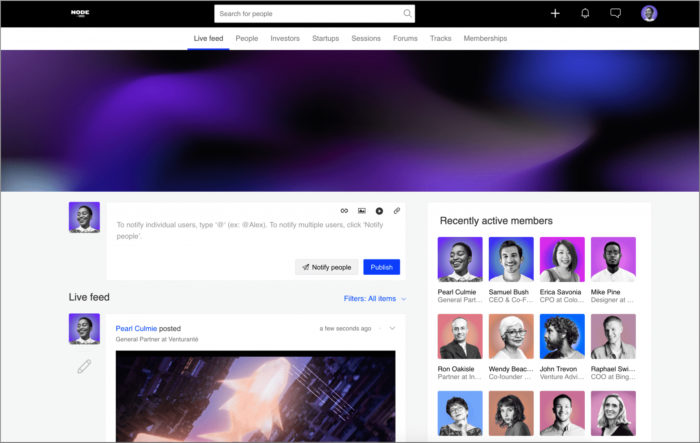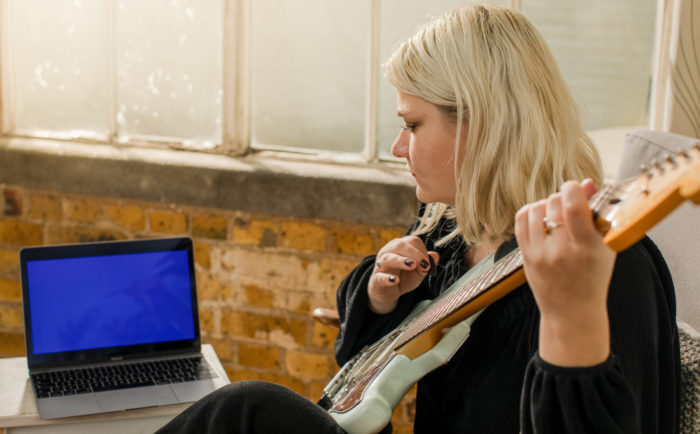Slush Helsinki, one of Europe’s leading startup and technology events, normally attracts 25,000 people annually to the Finnish capital for several days in late November or early December. But these aren’t normal times.
Billing itself as a “student-driven, not-for-profit movement,” Slush counts among its participants thousands of startups, investors, journalists and students. Its name is related to the early-winter weather in Helsinki: sometimes it snows, sometimes it rains, sometimes the temperature is just above freezing, and sometimes far below.
With the coronavirus pandemic affecting the world, however, Slush organisers couldn’t invite everyone to Helsinki. They wondered what else they could do to fulfil their mission of helping entrepreneurs and acting as “a vehicle for change,” as Slush’s website puts it.
“We were the first big event in Finland to cancel when Covid-19 was beginning to spread,” says Slush CEO Miika Huttunen. “It was a difficult decision, because at that time many people expected the pandemic would end quickly.”
Helping startups at a distance

Slush CEO Miika Huttunen says that Node by Slush provides the answer to “how we could best help company founders move forward” in the coronavirus era.Screenshot: Slush
It turns out cancelling was a good decision, because, as we know, the pandemic didn’t end quickly. Yet there remains a great need for Slush, which assists startups in finding investors, partners and mentors. This hugely valuable service became even more important during the economic downturn caused by Covid-19.
“We wondered how we could best help company founders move forward,” Huttunen says. “We thought about how founders were hurting and what we are good at doing. The idea we came up with is Node.”
Node by Slush is a curated community of entrepreneurs, mentors and investors. A founder can connect with other entrepreneurs, get advice from experienced businesspeople and raise money from investors. Dynamic startups like the food delivery firm Wolt quickly signed up, joining major investors like Atomico. Node became front-page news overnight when Daniel Ek, the founder of Spotify, announced on the platform that he would invest one billion euros in European startups.
“Yeah, that got some attention,” Huttunen says with a smile. “Many startups need capital now. Slush is here to help, no matter the situation.”
Node looks like a social media tool for entrepreneurs, a place where they can find and develop contacts. It is a versatile platform designed to fit exactly what a founder needs. For example, if you want to expand into Spain, you can search for Spanish partners or investors. If you want help with your AI research, you can find an AI expert to mentor you.
If you want to pitch your solution to other companies, you can find relevant groups in your industry. These activities are what Slush was designed for.
Encouraging constructiveness at home Coronavirus-related lockdowns in many places have led to an increase in people who have the time and inclination to teach themselves to play instruments, and that trend has had an effect on related businesses.Photo: Yousician The economic situation is tough, particularly for companies in industries like transportation and tourism. Yet the strangeness of the pandemic situation also represents an opportunity for some young companies. One of them is Yousician, a music education company founded in Helsinki in 2010. They use audio signal processing technology that can recognise notes and chords via a mobile app. People can learn how to sing or play the piano, guitar, bass or ukulele using the platform. Sometimes they have guest teachers, like when Def Leppard guitarist Phil Collen dropped by for an online class. “We have actually been extremely fortunate,” says Yousician cofounder and CEO Chris Thür. “People are stuck at home under lockdown, but they want to use their time constructively on education and self-learning. Because of Covid-19, I think there are several hundred thousand people who have begun using our service.” This makes sense, since major guitar manufacturers have experienced a record-breaking wave of sales growth during the pandemic, as the New York Times and others have reported. On your couch at the beach Yousician is an online platform for learning how to sing or play the piano, guitar, bass or even ukulele.Photo: Yousician Yousician’s sales may be increasing, but the pandemic impacted the running of the company, just like it did in millions of other small businesses around the world. “We closed the office and told everyone to work from home,” Thür continues. “Some people were happy to work from home, but others didn’t like it. We have a close employee community, which is particularly important for the half of us who are international. We had one guy who moved to Finland to work with us and immediately went into lockdown. He had no opportunity to make friends in the country except through work.” Thür knows the challenges of immigrating to another country. He was born in Switzerland, and moved to Finland in 2007. Yousician set up a buddy system and encouraged the individual teams to do nice things for each other and have fun. “One day we had a beach theme,” says Thür. “We had an online meeting and everyone was dressed up as if we were at the beach. It was a lot of fun.” Don’t forget the human element Yousician’s platform was well positioned for a world in which many jobs, courses and hobbies have moved online.Photo: Yousician Thür says he is a fan of technology, but stresses how important the human element is in music making. He doesn’t want Yousician to become a fully virtual company, with people only communicating online. This is critical for all levels of education. “Many schools closed because of Covid-19, but people don’t think about music education in such a big disruption,” says Thür. “We decided to give educators and students free access to our platform because we wanted music learning to continue, even during a lockdown.” |
By David J. Cord, November 2020









